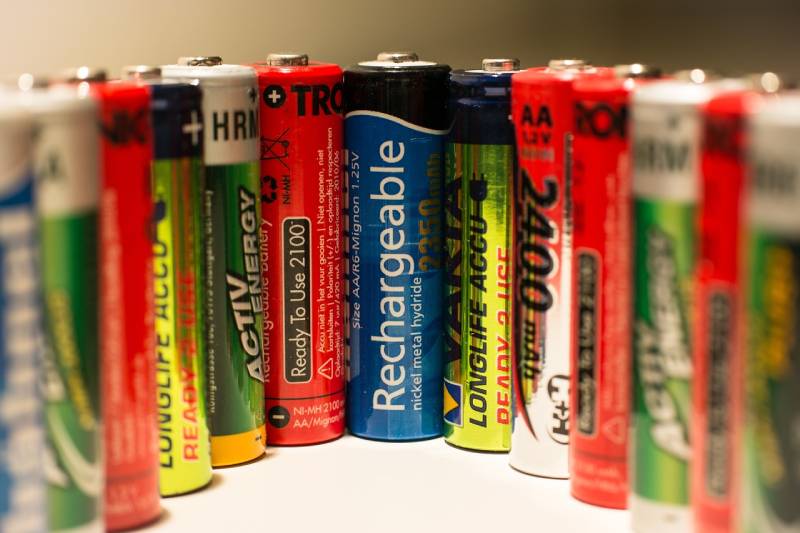Original Article: https://www.dogster.com/ask-the-vet/my-dog-swallowed-an-airpod
Click to Skip Ahead
If your naughty hound has swallowed an AirPod, you’re likely feeling two things: annoyed and worried. While we can’t help you out with the first one (that’s between you and your dog), we can hopefully put your mind at ease about the second.
In most cases, AirPods will pass through your dog without incident, and they might even still work. Of course, you may not want to use them after that particular journey.
Whenever a dog swallows something they shouldn’t, there is always a risk of obstruction or irritation. With a device like an AirPod, there is an additional concern about the batteries inside. We have all heard horror stories about the internal damage caused by swallowed batteries, and although AirPods do contain small batteries, the likelihood of them causing a problem is quite low.
If your dog has swallowed an AirPod and is showing any signs of discomfort, pain, nausea, or vomiting, do not hesitate to phone your vet. If they are acting completely happy and well, read on to find out what you should do next and what signs to be watching out for.


What Are AirPods?

Although Apple would probably be horrified, we are going to use “AirPod” to refer to any wireless headphones, regardless of brand. The idea of tiny, wireless, easy-to-lose headphones seemed completely absurd when AirPods first hit the market in 2016—surely this was an invention destined to fail. By 2023, over 100 million people worldwide owned AirPods, with a similar number having wireless earphones of other brands.1 That’s a lot of AirPods just waiting to be swallowed by a mischievous hound.
There is only a little variation between brands and versions, with most AirPods measuring around 1½ inches long and no more than half an inch in diameter. Each AirPod contains a tiny lithium-ion battery, which is so difficult to access that you need to send it to the manufacturer to be replaced, which is why most people just replace them completely.
There are no charging ports or wires, as the earpieces charge wirelessly in their case, and they are usually quite tough and resistant to damage, which is good news for dogs (and their owners).
My Dog Swallowed an AirPod—What Now?
So, we know that AirPods are small and sturdy, with tiny, difficult-to-reach batteries, but how does this affect the risk to our dogs? To determine this, we need to ask two questions:
- How large/small is your dog?
- Did they chew the AirPod or swallow it whole?

Dog Size
The smaller the dog, the more likely it is that an AirPod may become lodged in the intestines, causing a blockage. If this occurs, it is highly likely that your dog will need surgery to remove the device. In larger dogs, the earpiece is more likely to pass through the gastrointestinal tract over the next 24 to 48 hours.
Chewed vs. Swallowed
If the earpiece has been swallowed whole, depending on the size of your dog, it will likely pass through the digestive tract relatively unscathed. If your dog has chewed the AirPod, it is possible that the battery may be exposed. Lithium batteries can cause electrochemical burns to the esophagus, stomach, or intestines, particularly if they get lodged in the lining of these organs. Because AirPod batteries are so difficult to access, it is unlikely that even a chewed earpiece will result in them being freed, but it is still possible.
The sharp edges of chewed-up AirPods can also cause physical trauma to the esophageal or intestinal lining. However, this risk is quite low, and the lining of the gut is tougher than you might think.


When to Contact the Vet
If your dog eats or swallows something they shouldn’t, our advice is always the same: If in doubt, dial your vet. They will be able to advise you based on your specific circumstances and decide if your dog needs to be seen, so don’t be afraid to call for help.
If you decide to monitor your dog at home, here are some signs that your dog needs urgent veterinary attention:
- Vomiting or difficulty swallowing
- Coughing, panting more than usual, or difficulty breathing
- Salivating or showing signs of mouth discomfort
- Lethargy or inappetence
Any of these signs can indicate a problem caused by the swallowed device, and this is considered an emergency.
What About Other Batteries and Devices?

We now know that AirPods pose a relatively low risk if swallowed, but what about similar devices or other batteries? Let’s check out some other small items that could cause problems if your dog decides to turn them into a snack.
Button Batteries
Button batteries, also known as coin cell batteries or watch batteries, are commonly found in portable devices such as calculators, wristwatches, car key fobs, small remote controls, and even some dog toys and light-up collars. Their small size makes them easy to swallow, and they land many humans and animals in the hospital. Button batteries can be either alkaline or lithium, both of which are potentially harmful.
- Damaged alkaline batteries leak corrosive material and can cause electrochemical burns if they become lodged in the esophagus or intestines.
- Lithium batteries are not corrosive but can cause more serious electrochemical burns.
If your dog has eaten one of these batteries, or even if you think they might have, call your vet immediately.
Cylinder or Rectangular Batteries


These are the ones that come in sizes like AAA, D, or 9V, and they can also be alkaline or lithium-based. The greatest danger from these batteries occurs when dogs chew and damage them, causing the liquid inside to leak. This liquid can cause severe tissue damage and necrosis in the mouth and surrounding areas and result in devastating internal damage if swallowed.
If your dog has chewed one of these batteries, don’t panic. Try to determine if they have swallowed any or all of the battery, then phone your vet urgently. Even if these batteries are swallowed without external damage, they still pose a risk of causing an obstruction, so veterinary care is still advised.
Hearing Aids
Dogs eating hearing aids is a surprisingly common event. Fortunately, they pose even less of a risk than AirPods, as most hearing aids use zinc-air batteries, which do not have the corrosive or electrochemical properties of alkaline or lithium batteries. Some newer hearing aids contain a tiny lithium battery like AirPods, so the risks from swallowing these are the same as with AirPods.
My Dog Swallowed an AirPod—Should I Make Them Vomit?
Absolutely not. It might seem like a good idea to get the object out as quickly as possible, but in cases like with AirPods where the potential risk is due to contact with the battery, making your dog vomit could actually do more harm than good.
The best thing to do is contact your vet or the Animal Poisons Hotline for advice. Depending on your situation and what your dog has eaten, they may recommend monitoring them, or they may advise you to take your dog to the vet immediately.



Final Thoughts
The small size of AirPods makes them a common target for inquisitive dogs, and your dog wouldn’t be the first to swallow one. Most of the time, these tiny devices do not cause any harm, but this can vary from case to case, and you should always err on the side of caution.
While AirPods will usually make their way through the digestive tract without incident, if complications do occur, they can be severe, so do not hesitate to contact your vet or a veterinary telemedicine service for advice.
Featured Image Credit: Muhammad Baqa, Shutterstock
Source: Dogster












